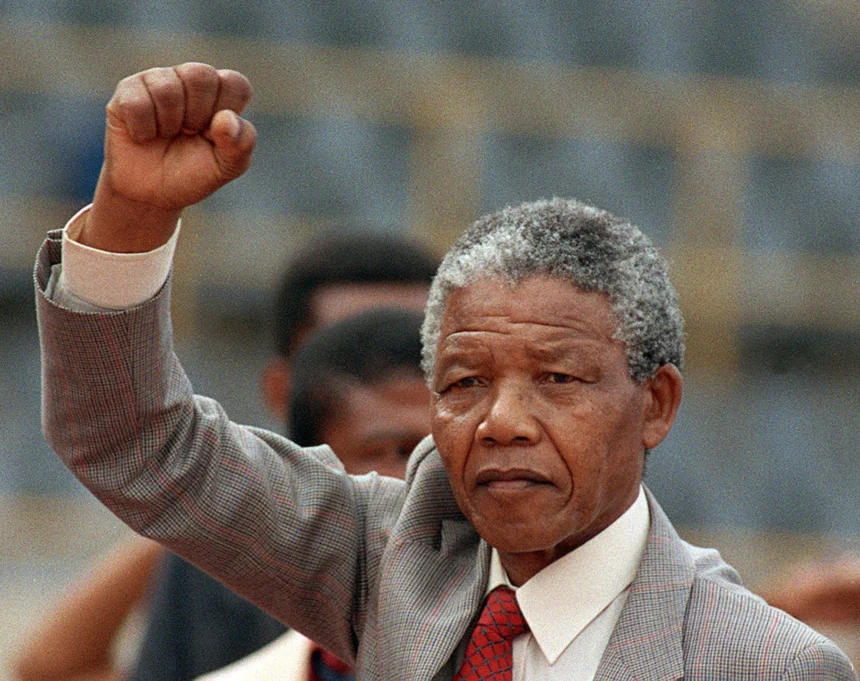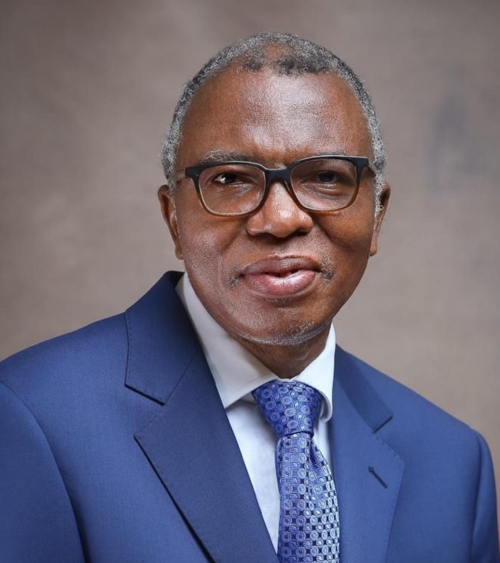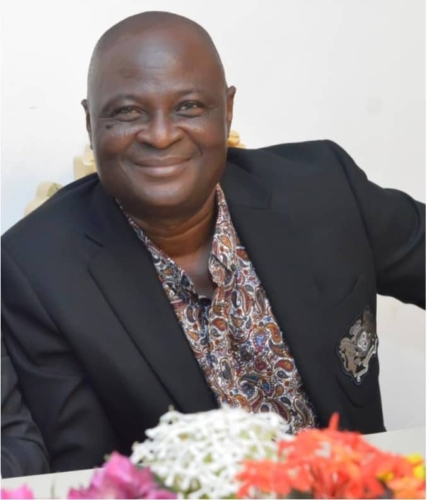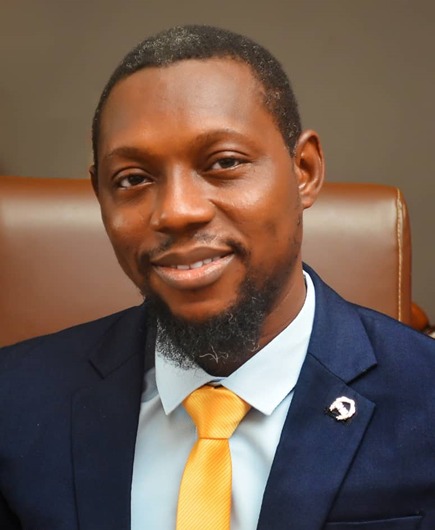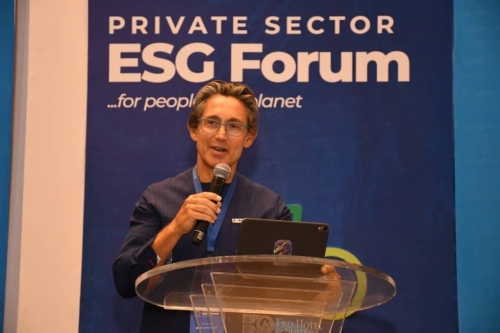I had to summon all the will-power I could manage not to shed one teardrop when I was visited by a couple of weeping siblings who came with a wave of emotions behind them, to say nothing of an uncontrollable deluge of tears.
Shade, the female warder, who had ushered them into her office, had to appeal to them to stop it. Stop whipping up sentiments in the mind of Mandela, she said. That got me laughing. I found my voice and told Ifiemi and his elder sister, Atonbara, that even if they filled a basin with their tears, I would not leave the walls of Okaka prison until the time appointed by God.
That brought them up short. They nodded and could not stop nodding until I finished speaking. I didn’t say much because the words were heavy stones in my heart, and if I continued talking they would dissolve into sorry tears. I simply did not want to cry. I would be brave about it. I didn’t want anybody visiting me to go back and tell the world that they saw me weeping behind bars.
I merely told them not to worry. Every journey comes to an end. I happen to have been thrown into the middle of a journey, and all the company I had were fellow travellers I didn’t know from Adam. There was no point crying wolf about it, so to speak, and I could afford to say that right in front of the Big Bad Wolf.
One blessed day, I confessed, I would be a free man again, and so indeed shall it be. What did I do wrong, come to think of it? I wrote a book. People write books every day. People write letters every day. If my letter got the wrong reply and got me in here, why does anybody have to make it worse for me by persuading me to weep? I shall not weep. Big boys don’t cry.
This was me quoting the Big Bad Wolf. In the week preceding Christmas, I was just a few days old in detention. A few chickens were being chased around by a few cocks, and it was clear that in the next few days, they would all end up in the pot. The yard was busy with inmates traversing the cell spaces to sort out their necessities before they got locked up again for the night.
The buzz of conversation was heavy in the ear as greetings floated in the air, warders shouting orders in between. I had picked up a white plastic chair branded C4 in black paint, and took my place in the small sandy corridor demarcated by the gauze around the cell blocks.
Up above, the sun was just beginning to climb into its pre-eminent space in the sky, its heat and brightness rising by the minute. I was feeling morose about the world until I heard the Big Bad Wolf say to somebody: Big boys don’t cry. I say big boys don’t cry. It was as though he was talking to me.
And here was Ifiemi and Atonbara doing their best to make me weep, without meaning to do so. I did well not to look Ifiemi in the eye. He could hardly speak. Every time he opened his mouth, a croak of tears threatened to break him down into one rudderless helpless cry-baby. Only a closed mouth could shut down the toad in his throat. It was a deep bit of wisdom that got Atonbara and her brother swallowing their pain at seeing me behind bars.
I looked out the window into the yard, and saw again the familiar sight of inmates sauntering about the open field, running errands, kicking football, lugging buckets, carrying the Bible, carrying their notebooks, hanging their legs in the short booths built around the yard, generally lazing around in wait for the next sound of the bell, and for that far off freedom day to come fast.
I turned to assure my visitors that I was not dead. I was alive and well and grateful for it. I told them in simple terms that I was here on assignment. I didn’t know what the assignment was all about, but it was all for the best. I thanked them for coming, and gave my best regards to their individual families.
In the end, Shade had to shoo them to the door, dispensing homilies for them to take home about the impropriety of adults visiting their folks in prison, and weeping like distressed kids. What business did they have coming to see Nelson Mandela with tears in their eyes? Every time Shade mentioned that revered name in connection with me, I shuddered.
I couldn’t bear the thought of being compared with that colossus of prison life who lived for all of twenty-seven years behind bars, and came out to become President of his country. Here was I marking time for four months and fifteen days in the long run, and I was crowing my head off. Nelson Mandela was it, and I couldn’t come anywhere near him.
But Shade was equally firm. She insisted that I was missing the point. We were not talking about the length of time Mandela spent in prison. We are talking about why he was in prison. He was in prison because of what he believed to be true. Is that right? Yes. He was thrown behind bars on pain of principle.
I took a second look at Shade as she began to demonstrate to me that everything about the law had rubbed off on her in the course of her daily service as a warder, a female warder at Okaka prison. She was reminded of her duties whenever she put on her starched deep green uniform, her rank visible upon the epaulettes. She took notice of every case, and could tell the bad guys from the good.
Shade had paid close attention to me for the first time when I was visited by three uncles of mine in the second week after my detention. She wanted to know just why I was locked up for writing a book, and she wanted to know what I said in that book.
I was telling my uncles never to lose sight of the fact that the book was primarily a crusade against face-down burials in Nembe, and I gave a graphic reminder of the abominable and objectionable manner in which my younger sister was buried, in spite of the fact that she died under the crush of trailer tyres in Suleja.
Shade’s attention was complete when I went on to remind my uncles that the book insists that the king should summon the courage to crush the head of the serpent, in keeping with the instructions of Jesus Christ. This does not mean that the king should go out of his way to step on the knuckle head of every serpent.
It merely requires of him to make a pronouncement to the entire Nembe kingdom that we shall no longer bow down to worship the serpent as in times past. We shall no longer proclaim the serpent as our national god. We shall not kowtow to creepy, creeping things.
We are Christians living in the twenty-first century, and we have a duty to live up to the noble expectations of Rabbi in the Jesus Millennium. This was my argument. This was, in sum, the content of the book. Beyond that, I enjoined the king to build our kingdom into a model fit for reference in first-world civilization.
That day, Shade was convinced that if indeed I was incarcerated for saying these things and actually writing them down, then I was a prisoner of conscience. No more, no less. I wasn’t doing this for myself, was I? No. I had the future of my primeval community in mind. As far as she was concerned, I was Nelson Mandela. From that day onward, Shade called me by no other name.
When the swelling in my left leg got to an alarming point, Shade was one of the first warders to show concern. She took the advice of Segun, the Yoruba inmate who had taken a liking to me from the time I walked into the yard. Segun said he grew up with his grandmother who was good with herbs. He would tell Shade, the welfare officer, to buy exactly what he would tell her to buy at Swali market. He would prepare a special concoction that would heal the wounds after he had scarified my leg and brought out the bad blood.
“What do you mean?” I asked Segun with apparent naivety.
“Yes, we have to bring out the bad blood before it poisons you”. And he began to tell me what he had done for Willie, the old Ghanaian in the Indian cell who suffered from two swollen feet. The poor fellow couldn’t walk until Segun let out the bad blood and rubbed in the concoction.
Willie took his antibiotics alongside that, and in two weeks, he was walking perfectly again. Many inmates were around to confirm what Segun said. Yes, it was true. The old man’s two feet were scarified, and he bled all that bad blood out. I had only the left foot to deal with, so what was the big deal?
God knows I didn’t bargain for this, but I was increasingly persuaded to do exactly what Segun had suggested. Shade affirmed that it was the right thing to do. They do it all the time in Yoruba land. Let out the bad blood, and walk without a limp. She was all too happy to buy the required herbs for Segun to mix his potion.
One evening, just before the cell doors closed for the night, I sat on a wooden stool, stretched out my fat left leg, and watched Segun cut into my flesh with a brand new blade. The blood that flowed out was black at first, then it turned red, and every inmate who witnessed the open-air surgery could not but agree that I was in pain.
“Sorry, Elder,” said Martin.
“Endure,” said Abuja.
I gritted my teeth, and watched Segun wield the blade like a veteran in an ancient African art. I watched my blood gradually soak up the sand around it, quickly caking with every passing minute. When he was through, I counted thirty-three minor cuts he had inflicted on my left foot even as I winced in pain.
In a few days, two weeks at most, I would be walking easy again, he said. He cleaned the wounds with a generous spread of kerosene, and just when I began smarting from that, he rubbed in the peppery potion he had prepared with the herbs Shade bought at Swali market.
For two weeks after that, I hobbled around the yard on one and a half feet. I wonder what my weeping visitors would have done if they had seen me then.

